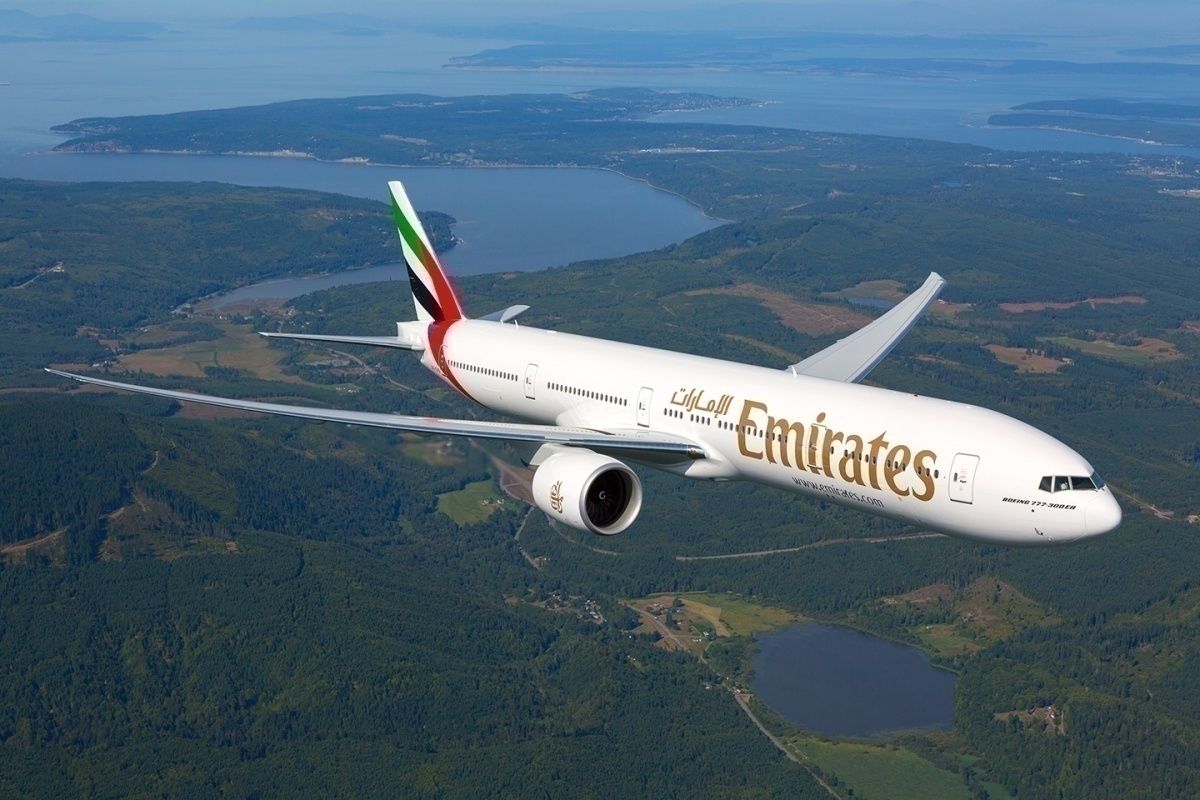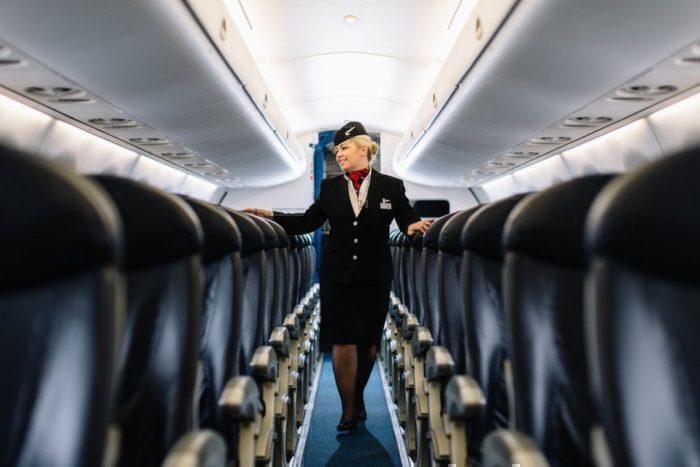**Update: 03/08/20 @ 17:00 UTC – Comment from Emirates spokesperson included below.**
Oops - another airline has had an embarrassing case of 'accidental slide deployment!' The incident appears to have taken place on the evening of August 1st at Sydney Kingsford Smith Airport in Australia and involves an Emirates Boeing 777-300ER.
Update. A comment from an Emirates spokesperson says the following:
"Emirates can confirm that EK2608 had a technical issue where L1 slide deployed inadvertently. The aircraft was operating as cargo only from Sydney to Dubai Airport. The engineers have removed the slide and the flight departed 18 minutes late. No further damages were reported."
Details of the accidental slide-deployment
A post on Twitter surfaced from user 'Mike' with handle @Seymoresky. The post includes an image of a Boeing 777-300ER with its passenger door open and an inflated slide, crumpled up against a jetway.
While the photo itself does not clearly identify the airline, the Twitter user's caption says that the picture involves an Emirates aircraft in SYD - otherwise known as Sydney Kingsford Smith Airport.
As the post was made public at 04:10 UTC on August 2nd, it is highly probable that this incident involves incoming Emirates flight EK414, which would have arrived at approximately 21:35 local time the night before (August 1st). As the photo appears to have been taken at night or early in the morning, this would also support our theory.
If this were indeed the flight and time of the incident, then the aircraft involved would be A6-EPX, according to FlightRadar24.com. Data from Airfleets.net indicates that this aircraft is a 3.6-year-old Boeing 777-300ER configured to have 356 seats in a three-class configuration: Eight in first class, 42 in business, and 306 in economy.
Stay informed: Sign up for our daily aviation news digest.
What causes an accidental slide deployment?
It's something all passengers hear with every flight before take-off: Arm doors and cross-check. Then, at landing, and just before parking, that order to the flight attendants is reversed: Disarm doors and cross-check. The order has a few variations, and sometimes passengers will hear "arm/disarm slides," "prepare doors for departure/arrival," or "doors to automatic/manual."
The cross-check part of the command is a generic term for crew directing one person to verify the task of another. Ask The Pilot says that, for the cabin, "flight attendants cross-check one another's stations to make sure the doors are armed or disarmed as necessary."
An unintentional slide deployment happens when the aircraft door in question is either not correctly disarmed or has suffered a malfunction with its slide system. If the slide was not adequately disarmed (read: not disarmed at all), then it will deploy automatically when doors are opened. This automatic deployment is intentional to facilitate speedy evacuation of the aircraft in an emergency.
These things happen...
Earlier this year, we reported that a Virgin Atlantic Boeing 747-400's emergency slide unintentionally deployed at Manchester Airport. This took place just as the catering service vehicle was pulling up to the aircraft. The pre-pandemic incident ended up causing delays for the flight to Orlando – arriving four hours and 54 minutes late.
As for this weekend's Emirates incident, the Twitter user is suggesting that this may have been a result of out-of-practice crew, who have been flying less frequently and/or on cargo-only flights in recent months.
Do you think this incident was caused by cabin crew being 'out of practice' as the Twitter post's user suggests? Let us know your thoughts in the comments.
Simple Flying reached out to Emirates, requesting comment and confirmation regarding the incident. However, at the time of this article's publication, no response has been received from the airline. We will update this article if any new information comes in.


